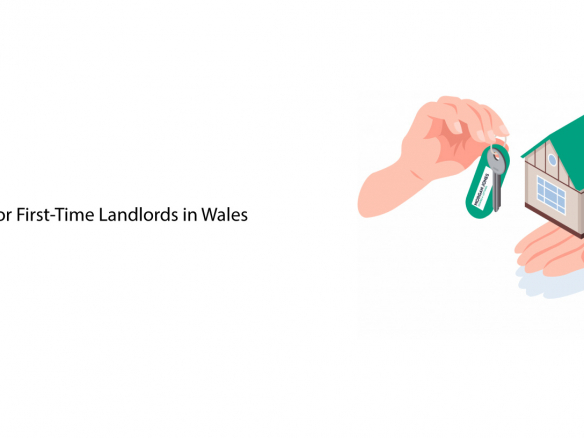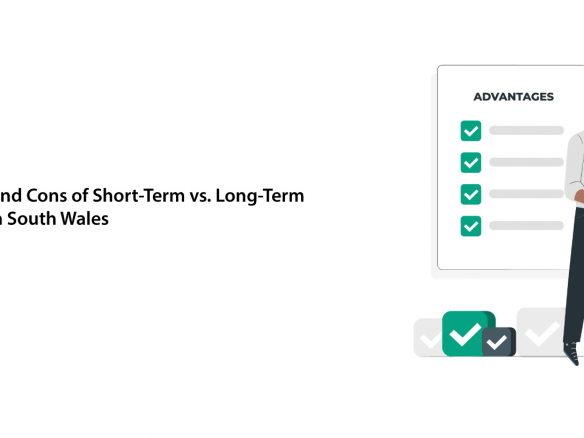Understanding tenant rights is crucial for landlords in Wales to ensure legal compliance and foster positive landlord-tenant relationships. Tenant rights are vital in maintaining a healthy, respectful dynamic, leading to fewer disputes and more stable tenancies. This blog aims to provide landlords with a comprehensive guide to tenant rights in Wales, outlining key legal obligations and best practices for effective property management.
Overview of Tenant Rights in Wales
Tenant rights in Wales are governed by Welsh housing laws, which outline the responsibilities and protections afforded to tenants. These rights include the provision of a written occupation contract, the right to safe and habitable housing, the right to privacy, and the right to fair treatment without discrimination.

Understanding and respecting these rights is essential for landlords to ensure compliance with the law and avoid potential legal issues.
Adhering to tenant rights helps maintain a positive landlord-tenant relationship and protects landlords from disputes and legal repercussions. Ensuring that tenant rights are upheld can lead to more stable tenancies and a better reputation in the rental market.
Key Tenant Rights Every Landlord Should Know
Right to a Written Occupation Contract
In Wales, landlords are required to provide tenants with a written occupation contract. This contract must clearly outline the terms and conditions of the tenancy, including rent amounts, payment schedules, and the duration of the tenancy. A comprehensive and transparent occupation contract helps prevent misunderstandings and disputes, ensuring both parties know their rights and obligations.
Right to Safe and Habitable Housing
Tenants have the right to live in a safe and habitable environment. This means that the property must meet specific standards of repair and safety, including working heating and plumbing systems, secure windows and doors, and compliance with fire and electrical safety regulations. Landlords are responsible for maintaining the property and promptly addressing any repair issues. Regular inspections and swift responses to maintenance requests are crucial in fulfilling this obligation.
Right to Privacy
Tenants have the right to privacy in their rented homes. Landlords must respect this right by providing proper notice before entering the property, typically at least 24 hours in advance unless there is an emergency. Valid reasons for entry include performing repairs, conducting inspections, or showing the property to prospective tenants or buyers. Adhering to these notice requirements helps build trust and respect between landlords and tenants.
Right to Fair Treatment
Tenants are entitled to fair treatment without discrimination. This means landlords cannot discriminate based on race, gender, disability, religion, or other protected characteristics when selecting tenants or interacting with them during the tenancy.
Ensuring fair treatment in tenant selection and ongoing interactions fosters a positive and respectful rental experience, benefiting both landlords and tenants.

Understanding the Occupation Contract
Essential Components of the Contract
An occupation contract in Wales must include several key clauses to ensure clarity and prevent disputes. These essential components include:
- Rent Amount and Payment Terms: Specify the rent amount, due dates, and accepted payment methods. Include details about late fees and penalties for non-payment.
- Deposit Information: Outline the deposit amount, the scheme it is protected in, and the conditions for its return.
- Maintenance and Repairs: Clearly define the landlord and tenant’s responsibilities regarding property maintenance and repairs, including procedures for reporting and addressing issues.
- Duration and Termination of the Tenancy: State the length of the tenancy, conditions for renewal, and notice periods required for ending the tenancy.
- Tenant Responsibilities: Detail tenant obligations such as maintaining cleanliness, avoiding damage, and adhering to property rules.
- Landlord Access: Specify the conditions under which the landlord can enter the property, including notice requirements for inspections, repairs, or viewings.
- Dispute Resolution: Include a clause outlining the dispute resolution process, such as mediation or arbitration options.
Having clear and detailed terms in the occupation contract helps avoid misunderstandings and ensures both parties know their rights and obligations.
Changes and Renewals
Over time, changes may need to be made to the occupation contract, or it may need to be renewed. The process for making changes to the contract typically involves:
- Mutual Agreement: Both the landlord and tenant must agree to any changes. This agreement should be documented in writing and signed by both parties.
- Notice Requirements: Landlords must provide tenants with proper notice of any proposed changes to the contract. The original agreement should outline the notice period and process for making changes.
- Renewal Process: Review and update any necessary terms to reflect current conditions and agreements when renewing the contract. Provide the tenant with a copy of the new contract and ensure both parties sign the updated document.
By following these steps and adhering to legal requirements, landlords can ensure that changes and renewals to the occupation contract are handled smoothly and legally. This helps maintain a positive relationship with tenants and prevents potential disputes.
Tenant Responsibilities
Rent and Payment Terms
Tenants are responsible for paying rent on time as outlined in their occupation contract. This includes:
- Timely Payments: Tenants must ensure rent payments are made by the due date specified in the contract. To avoid late fees, tenants can set up direct debits or standing orders.
- Consequences of Non-Payment: Non-payment of rent can lead to severe consequences, including late fees, penalties, and eviction. Landlords should clearly outline their steps if rent is not paid on time. This can include sending reminders, imposing late fees, and initiating legal proceedings if necessary.

Landlords should handle arrears by first attempting to communicate with the tenant to understand the reasons for non-payment and possibly setting up a payment plan.
If the issue persists, landlords may need to follow legal procedures to recover the owed rent or reclaim possession of the property.
Property Care and Maintenance
Tenants are also responsible for the general upkeep of the property and for reporting any issues that arise. This includes:
- Maintaining Cleanliness: Tenants should keep the property clean and tidy, ensuring it remains in good condition throughout their tenancy.
- Reporting Issues Promptly: Any maintenance issues or damages should be reported to the landlord as soon as they are discovered. This helps prevent minor problems from becoming major repairs.
- Respecting the Property: Tenants should reasonably use the property, avoiding any actions that could cause damage or deterioration. This includes adhering to any specific guidelines in the occupation contract regarding using appliances, fixtures, and fittings.
By adhering to these responsibilities, tenants can help maintain the property’s condition and ensure a positive renting experience for themselves and their landlord. Clear guidelines in the occupation contract regarding tenant conduct and behaviour can help set expectations and reduce potential conflicts.
Handling Disputes and Evictions
Dispute Resolution
Disputes between landlords and tenants are common and can arise from maintenance responsibilities, rent payments, or property damage. To handle conflicts effectively:
- Common Disputes: Typical disputes include disagreements over repairs, unpaid rent, breach of contract terms, and issues of property damage or cleanliness.
- Resolving Disputes Amicably: Open and honest communication is key to resolving disputes. Landlords should listen to tenant concerns and try to find mutually acceptable solutions. Documenting all communications and agreements can help prevent misunderstandings. If direct communication fails, mediation services can effectively resolve conflicts without resorting to legal action.
Legal Eviction Process
In some cases, disputes may escalate to the point where eviction becomes necessary. To evict a tenant legally in Wales, landlords must follow a specific set of procedures:
- Grounds for Eviction: Ensure there are valid legal grounds for eviction, such as non-payment of rent, breach of tenancy terms, or antisocial behaviour.
- Serving Notice: Landlords must serve the correct notice depending on the reason for eviction. For example, a Section 173 notice (similar to a Section 21 notice in England) allows eviction without a specific reason but requires six months’ notice. A Section 159 notice is used for breaches of contract, with varying notice periods.
- Filing a Possession Claim: If the tenant does not vacate the property by the specified date, the landlord can file a possession claim with the court. This involves completing the necessary forms and paying the required fee.
- Court Hearing: Attend the court hearing, during which the judge will decide the outcome. Possible outcomes include outright possession orders, suspended possession orders with conditions, or dismissal of the claim.
- Obtaining a Warrant of Possession: If the tenant still does not leave, the landlord can apply for a warrant of possession, allowing bailiffs to carry out the eviction.
Following the correct legal procedures is crucial to avoid legal repercussions and ensure a smooth eviction. Landlords should seek legal advice if they need clarification on any step in the eviction process.
By understanding and adhering to these dispute resolution and eviction procedures, landlords can manage their properties more effectively and maintain a positive relationship with their tenants.
Resources and Support for Landlords
Where to Seek Advice
Landlords in Wales have access to various organisations and resources that provide support and guidance:
- Rent Smart Wales: Offers training and resources on landlord responsibilities and compliance with Welsh housing laws.
- Citizens Advice: Provides confidential advice on housing issues, including landlord-tenant disputes and legal obligations.
- Shelter Cymru: A charity that offers advice, support, and legal assistance for housing and homelessness issues.
- National Residential Landlords Association (NRLA): This organisation provides resources, training, and advocacy for landlords in the UK.
Landlords must stay informed about changes in tenant rights and housing laws.
Regularly consulting these resources ensures landlords comply with the latest regulations and can manage their properties effectively.

Professional Property Management
Using a professional property management service offers numerous benefits for landlords:
- Expertise and Experience: Professional property managers have the knowledge and experience to handle all aspects of property management, from tenant screening to maintenance and legal compliance.
- Time Savings: Delegating property management tasks to professionals lets landlords focus on other priorities while ensuring their properties are well-maintained.
- Legal Compliance: Property management services stay updated on housing laws and regulations, helping landlords avoid legal issues and penalties.
- Tenant Relations: Professional managers can efficiently handle tenant communications, disputes, and evictions, ensuring a smooth landlord-tenant relationship.
Morgan Jones offers comprehensive property management services to assist landlords in managing tenant rights and responsibilities. Our team offers expertise in maintaining compliance with Welsh housing laws, addressing tenant concerns, and maximising rental income. By partnering with Morgan Jones, landlords can enjoy peace of mind knowing their properties are in capable hands.

Understanding and respecting tenant rights is crucial for successful property management in Wales.
Landlords can foster positive relationships and avoid legal issues by providing a written occupation contract, maintaining safe and habitable housing, respecting tenant privacy, and ensuring fair treatment.
Staying informed about tenant rights and housing laws and seeking professional help when needed can significantly improve the landlord-tenant experience.
Consider partnering with a professional property management service to ensure your properties are managed effectively and in full compliance with Welsh laws.
Contact Morgan Jones today for expert advice and assistance with tenant rights and property management. Our comprehensive property management services are designed to help you navigate the complexities of landlord responsibilities and maximise your rental property’s potential.
Visit our property management services page for more information and to schedule a consultation.
Visit our Contact Page or contact us at 01792 651311 to start the conversation.








Join The Discussion